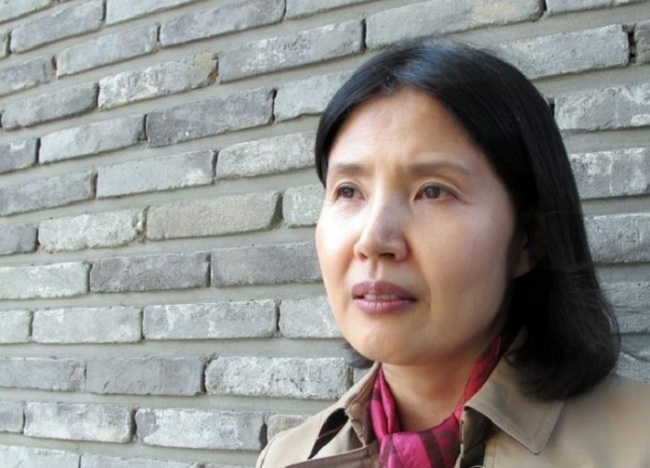The #MeToo movement is gathering momentum in Korea, as public figures continue to come forward with stories of sexual harassment involving prominent individuals.
In a televised interview on JTBC’s news program Tuesday, Choi Young-mi shed light on sexual harassment in the literary world.
Choi has published several volumes of poetry, including the popular “At Thirty the Party was Over” and “Things Already Hot.”
The interview revolved around a poem titled “Monster,” in which Choi makes thinly veiled allegations of sexual harassment by literary figures as well as a specific incident involving a senior poet.
 |
Korean poet Choi Young-mi (Yonhap) |
The poem, published in December, depicts how the narrator ended up sitting next to a senior poet, who is described as being notorious for groping young women. It also details the resulting suffering the narrator endured.
As the poem includes detailed descriptions of the senior poet, the media and public suspect the poet mentioned is likely a prominent Korean poet. “Monster” describes the senior poet as “En,” adding that "En" has published more than 100 books and has been speculated to win a prize, alluding to the Nobel Prize in literature.
It was reported that the disguised senior poet told a local newspaper Tuesday, “I think it was a year-end party some 30 years ago, where many literary figures joined. (I think) I had some drinks and held (her) wrist to encourage her. I had no intention of (sexual harassment), but if the action is labeled as harassment today, I think I was in the wrong and I regret it.”
Regarding the senior poet’s comment, Choi said, “If the senior person is the same person I had in mind when writing the poem, I think it is a flimsy excuse. He is a habitual offender. I saw him groping young women not just a few times but many times.”
Choi also noted that sexual harassment is rampant in the literary world. “I first entered the literary world in 1992, and my first book was published in 1994. In between, I joined many gatherings of literary figures. The scenes I witnessed were shocking. If I had known it was such a place, I wouldn’t have entered it, I thought,” Choi said.
There is purportedly a power dynamic at play between young female writers and established male literary figures. If young female writers refuse sexual advances from influential male literary figures, including editors of prominent literary magazines, they often lose the chance to publish and promote their works. Things happen implicitly, so it is difficult to pinpoint, Choi added.
The latest allegation has rekindled the issue of sexual harassment in the literary world. In 2016, writer Park Bum-shin was accused of sexually harassing co-workers and fans. At the time, a Twitter user who claimed to be a former editor of a publishing house that had worked with Park said that Park made editors pour drinks for him and groped them, yet no one could raise objections, largely due to the implicit power dynamics of the literary world. Park issued an apology and postponed publication of his work, which was eventually released in December last year.
On Jan. 30, Seo Ji-hyun, a public prosecutor at the Tongyeong branch of the Changwon District Prosecutors’ Office, said Ahn Tae-geun, who was a senior Justice Ministry official at the time, sexually harassed her at a funeral in 2010. Following the televised allegation, the Justice Ministry said Tuesday it would conduct a thorough investigation into Seo’s claim.
Earlier this week, an association of female movie professionals called off awarding a prize to a female director following revelations she had been convicted of sexual violence against another female colleague. An association of Korean movie directors also announced it had decided to expel her from the organization.
Shim Woo-hyun (
ws@heraldcorp.com)








